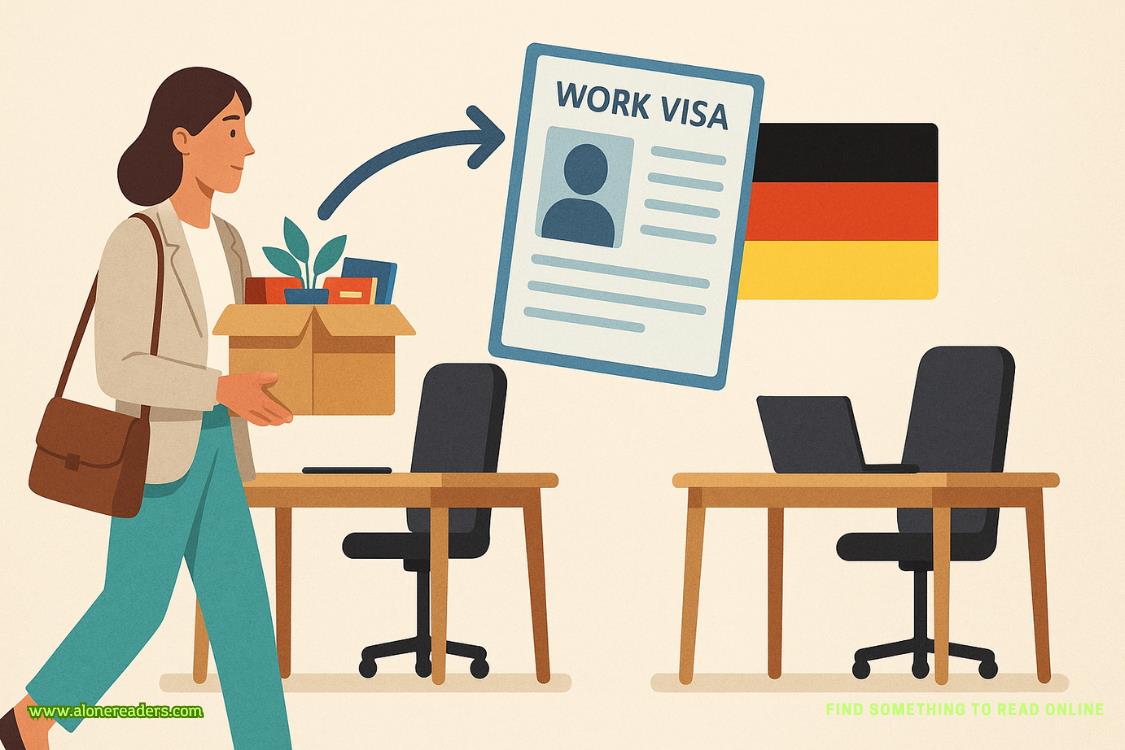Page 8 of Starlight & Dark Nights
“Mommy!” Faith calls out now, coming into the kitchen with one fist on her tiny hip. “Hope is being mean to me.”
Jude sighs and sits in a kitchen chair, patting her thighs. Without words, Faith sits down on her mother’s lap and turns to look right at her, eyes imploring her mother to intervene. To solve the problem. To be the voice of reason.
My beautiful girls, Jude thinks, tucking Faith’s hair behind one ear.
“Remember what I told you?” she says to Faith, glancing at the doorway to the kitchen as Hope appears there, looking sheepish. She is holding the doll in her hands.
“I remember what you told us, Mommy,” Hope says. “You said that someday we might only have each other, and so we should always be nice. Not everyone gets a sister.”
“That’s right,” Jude says, pulling out the chair next to hers for Hope to sit in. Once both girls are seated, she looks back and forth between them. “I hope that Daddy and I are here for a long, long time, but in life, sometimes people grow up and their very best friends are their brothers and sisters. You come from the same place, and you understand each other. That’s important.”
“Just like you and Aunt Mary and Uncle Oliver?” Faith asks innocently.
Jude swallows hard before answering. She and Mary and Oliver are not close. Her girls know them, of course, and have met their children, but for their entire lives, Jude has been pitted against Mary and Oliver, so the relationship is not a warm one, but rather a functional one.
“Aunt Mary and Uncle Oliver and I have different mothers,” Jude explains. Outside the kitchen window, a bird flies in and lands in a tree, catching Jude’s attention. She watches it momentarily as it flutters its wings and settles. “And there are things about our childhood that make it hard for us to be best friends.” She is afraid of saying too much, and so she stops there.
“Like what?” Faith pushes.
Jude shakes her head. “Just the way our father was.” Michael Harper had died before his granddaughters were born, and therefore Hope and Faith have no face, no memories, to assign to this man who was their grandfather. “He raised us differently, or rather, he let Grandma Bea raise us differently.”
The girls know their grandmother and are on good terms with her, but then again, they’re only eight years old. Jude fully anticipates that some of Bea’s feelings towards her husband’s oldest child will trickle down to Hope and Faith as they grow up, but as of yet, Bea has been consistently kind to them on the occasions when their paths have crossed.
Bea had remarried after her husband’s untimely death from lung cancer, and, in a weird twist of fate, she’d married a widower named Irving, a former Navy man who’d lost his wife, Esther, in a car accident, leaving him with his children, Chester and Ann, to raise alone. Of course, Irving and Michael Harper had known one another, as was already established when Michael suggested that Irving’s wife escort his young daughter from Japan to Los Angeles in 1941, but the eventual melding of the families had been enough for Jude to put as much distance between herself and Bea as possible. There is no way in hell she wants to spend holidays with Chester or to allow him anywhere near her girls.
“Are you raising us differently?” Hope asks, frowning at Jude.
“I’m raising you differently than Grandma Bea raised me, Uncle Oliver, and Aunt Mary, but I’m not raising you differently thaneach other,” she says, hoping that this distinction will make sense to her girls. “I love you both the same, and I want you both to understand that neither one of you is any less or more important in this household.”
The girls look at Jude with serious expressions, and she realizes that there’s no need to drive the point home today; she has plenty of years to show them and to tell them how important they both are to her.
“Now, why don’t you two go and play—nicely—while I finish making the cake for your birthday party tomorrow?”
At the words “cake” and “party,” Hope and Faith suddenly adopt a whole different attitude. Hope holds out the doll with a look of mild reluctance, and Faith smiles at her gravely.
“Thank you,” Faith says, accepting the doll. A brief flicker of regret passes over Hope’s face, but Jude gets them both on their feet and sends them off to play so that she can gather the ingredients for the lemon cake and buttercream frosting.
With the girls chattering happily in the front room, Jude moves around the kitchen, tying her apron around her waist, pulling a mixing bowl from the cupboard, and taking flour, sugar, eggs, and butter out and setting them all on the counter.
As much as the idea of a party thrills the girls, it does less to inspire joy in Jude; she’s always been more of an observer than a doer. Given the choice, she’d generally choose to sit on the sidelines and keep to herself. By tucking herself away from others, she’s more readily able to blend in, to hide the things about herself that she knows she should not share. But by keeping herself removed, she also misses all the opportunities for real friendship. Real camaraderie. True depth and understanding.
She’s lived the past twenty-four years of her life this way, and it’s hard to imagine suddenly doing it any other way.
By the time Vance gets home from NASA that evening, there’s a frosted cake resting on a wire rack, the food has been prepped for the next afternoon’s party, and Jude has vacuumed the entire house, cleared the pool area, and set up a table and two long benches beneath a tree. Hope and Faith have both taken a swim, showered, and are sitting in an oversized hammock reading books peacefully.
And—though she tries to remain completely steady on her feet—Jude Majors is already drunk.
CHAPTER3
Jo
It all feelslike a fever dream for Jo, and she’s been moving through her days on autopilot. Everything plays on a loop in her brain, tormenting her all day and keeping her from restful sleep at night: Jeanie Florence calling her house one evening looking for Jo’s husband, Bill; meeting Jeanie at Frankie Maxwell’s house; having that niggling women’s intuition in the back of her brain that things could go seriously astray with Jeanie and Bill. (She hated herself for thinking that, but she had! Instantly!) And then, finally, the moment that she sees on the back of her eyelids when she tries to fall asleep at night: Bill and Jeanie, standing before a burning space shuttle at Cape Kennedy, holding hands as Jeanie looked up at him with a gaze that could only be described as loving.
“When is the party, Mom?” Nancy asks now, interrupting Jo’s thoughts as she sits at the coffee table in her living room, wrapping up two Barbie dolls for Hope and Faith’s birthday.
Jo glances at the slim, gold watch on her wrist. “One o’clock,” she says. Bill has gone into work for the morning, even though it’s Saturday, and rather than questioning this or begging him to stay home, Jo feels relief at his absence. Bill being gone gives her the chance to breathe, to think, to not pretend that everything is fine by plastering on a game face and smiling at him every time he enters the room to ask where he put his briefcase/book/brown belt. Having him out of the house allows her to reexamine the image of Jeanie Florence’s face in her mind yet again.
“Do I have to go?” Nancy asks, trying to sound sweet, but instead sounding a little pouty. “They’re only turning eight, Mom. They’re more Kate’s friends than mine.”
- The Hollywood Billionaire's Fangirl Wife by Marian Tee
- The Mechanic's Virgin by Jenna Rose
- Perfect Three by Suzy Shearer
- Silver Fox Daddies by Liz Archer
- Sassy Pants by Glenna Maynard
- Neighbor DADDY by Lena Little
- Forgotten Dreams by Natasha Madison
- Last Hand by Jessica Hall
- Knocked-up Bratva Bride by Rina Lawson
- Domination by B.J. Alpha
- Cruel Revenge by Kira Cole
- Selfish Suit by Whitney G.
- Burned to Obey by Wynter Raven
- The Therapist by K. Larsen
- Obsession by J.O. Mantel
- Pursuit of Her by Emily Hayes







